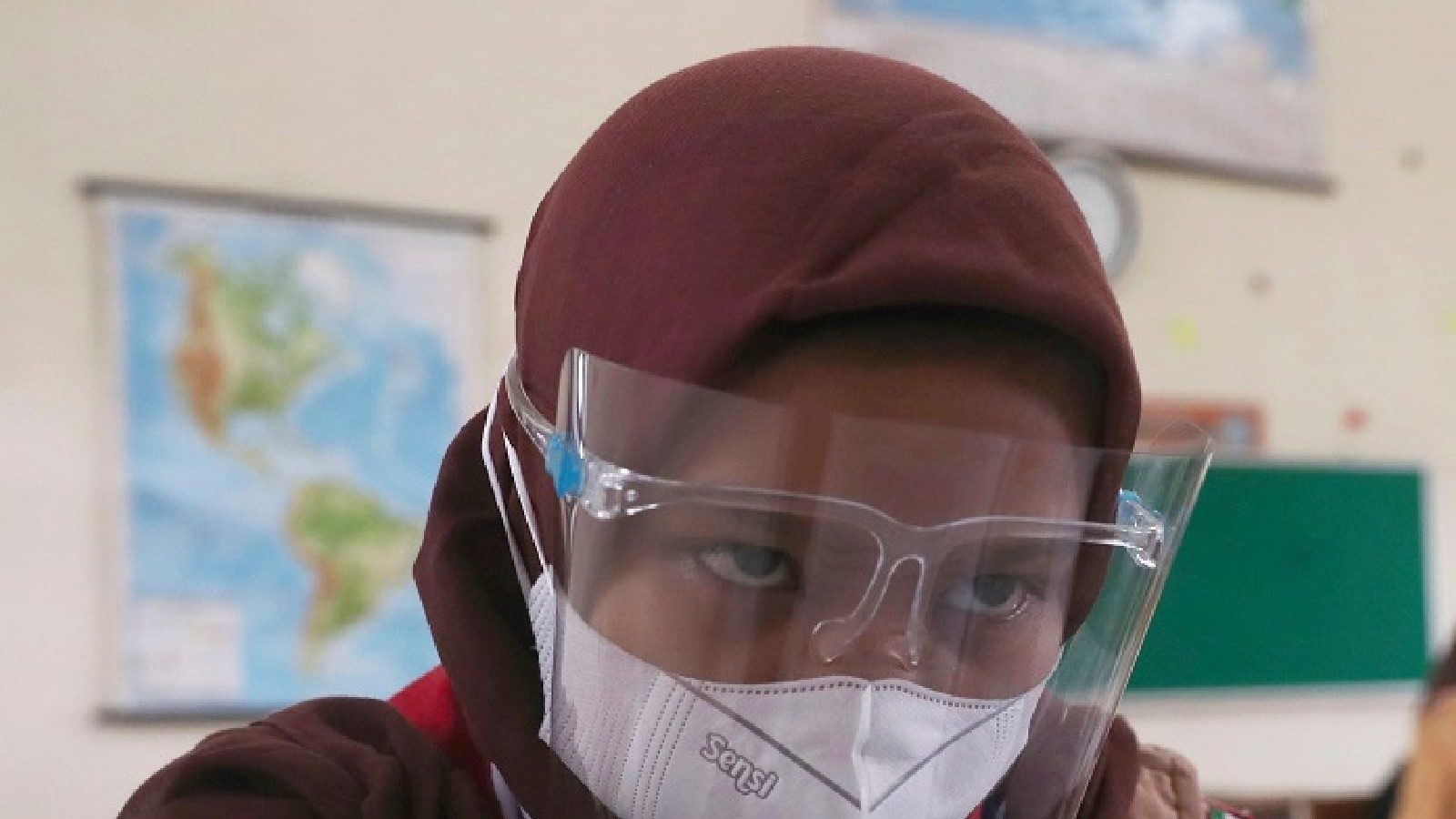Shutting down schools to prevent the spread of the coronavirus pandemic has lead to lead to increased dropouts and huge gaps in learning levels. As states dither over whether to reopen primary schools or not, here’s a study that paints a stark picture to make the case for reopening schools urgently.
An Azim Premji Foundation survey of over 16,000 students in primary schools found an alarming dip in language skills and math skills — 92 per cent of the children have lost at least one language ability, while 82 per cent have lost math skills.
Deepa Balakrishnan interviews CEO of the foundation, Anurag Behar, who says there is an urgent need to reopen all schools, but with a plan. In the longer term, this is a good case to be made out for having localised schooling like in many Western countries have – that is, children from a locality go to a school within a short distance. Here are excerpts from the interview
We wanted to get your perspective primarily on this concern of what is required really, for bringing children back to school because one of the key problems is a large number of schools are reporting drop-outs. Who are the ones who are dropping out? And how do we bring them back to school?
Behar: I think the reality is that none of us really know what is going to happen to the dropouts. When schools say drop-out, they are perhaps referring to registrations or fees that have been given to private schools, and things of that nature. How many kids are actually going to drop out? We don’t know right now.
It’s clear that the pandemic has caused enormous economic devastation. And therefore, it’s quite possible that a large number of kids may drop out. And therefore, knowing this, we must do everything possible to ensure that the most vulnerable groups, the most vulnerable families, their kids don’t drop out. We should fear kids being pulled out of school to work. We should take every measure to not let it happen. Currently, when people are talking about dropout numbers, that’s partly based on registrations or fees paid to private schools.
But there are case studies where we’ve seen children, typically in the age group of 14 – 15, have been asked to help with increasing the family income by working in shops, working on the farms, doing household chores, in other places, working as domestic help. There is a fear, I believe that they could permanently have dropped out also, we’ll have more of a challenge to get the parents to send these children back to school.
Behar: That’s the fear I’m talking about. That we should fear alright because if we don’t fear, we will not take action. If we think that when schools open up its life back to usual, then my fear is that perhaps lakhs of children will drop out. There is economic devastation across the country, it has hurt the most vulnerable. For many reasons, including augmenting the family income or taking care of their siblings, there would be pressure for those from the most vulnerable groups to drop out of school. So indeed, we should fear that and we should prepare for that now. What we must ensure is when schools open up, all children come back to school.
When we go to reopen schools, what are the levels of learning among kids?
Behar: Indian schools closed in March 2020. Schools have been shut since then, there have been good-intentioned efforts to continue education via online classes and mohalla classes. In the latter, teachers will go to the village or to the Urban mohalla, they will get the kids out into an open space and they will conduct classes. However, good-intentioned the mohalla classes are, they are very hard to execute. You can’t compensate for seven, eight hours of a school day by conducting a mohalla class where children from all mohallas are coming.
Even if you do a fantastic job, you can’t compensate for regular schools. Also, it’s not as though all states have done it methodically. Credit to those states that have tried, but most states have not tried it systematically. A sense of this is the mohalla classes, at best, what they have done is kept children engaged with their teachers — not really delivered conducted any real learning.
In online education is ineffective because most children in our country do not have access to the resources that will deliver online education to them. Over 200 million school-going children don’t have access to resources. The second problem is physical space. In many families, multiple people share the same room.
The fundamental nature of education, particularly for school-going children, is such that it requires intimate social connection, just a fancy way of saying we have to be together. And therefore, unless the in-person classes are being held the education is ineffective.
What it means is this: for 16 to 17 months, our children have not gone to school. point one, they have lost all learning that is supposed to happen in that period. Right? So a child who was in class 4 in March 2020. When she’s coming now into school, she’s going to come into class 6, just imagine how staggering that is. She’s not gone to the class 5 syllabus at all. And from class four, she’s coming straight to class 6.
Now, the lost learning in this period is not just the loss in those 16-17 months, the teaching loss in those 16-17 months, it’s that most children have forgotten a lot of what they used to know in March 2020. According to our recent study, over 92% of the children had lost fundamental capacities in language, in a fundamental capacity, meaning simple things like if you show them a picture, can they narrate in their own words, what is there in the picture?
86% of kids have lost fundamental capacities in mathematics. Fundamental capacities like just addition, or recognizing a number, depending on which grade you’re talking about because that study was class 1 to 6.
Now, imagine 210 to 200 million children are going to enter schools with a deficit. We need to have a thorough, rigorous, systematic plan as to how we deal with this, which can only be described as an absolute state of emergency in education.
How soon should schools start now, should government state governments now look at reopening schools? Because many, some have said they want to start off in a phased wise, phase-wise manner.
Behar: Well, I think that schools must be open right away. There must be a clear roadmap, a clear set of benchmarks through which you open the schools. But there must be a plan right away.
Open all schools, after all teachers and staff are fully vaccinated. Most states have done that. Most states have prioritized teachers, if they have not, they should. Let’s not wait for all children to get vaccinated but have a rigorous plan for the vaccination of children when children vaccination is approved. We should have a rigorous plan.
Schools should open up the basis on two criteria: localized a community. If a school is serving a very localized community, that community anyhow, inter-mingles, children certainly inter-mingle. So there is no real problem in terms of increased risk of infection, please go ahead and open the school. So take decisions at the village or the panchayat level on the ward level in a city.
Does it then also make for a case, in the long term that you must have localized schools. Some countries have this concept that you go to a school within a particular two-kilometre radius, etc. But that doesn’t apply in a city like Bangalore or a city like Mumbai
Behar: But there are many reasons to make that happen. If you’re local, you are responding to local issues, you can handle those issues locally. There are other fundamental matters, that it delivers equity to you. If my child was to go to the same school, where the neighborhood children from all walks of life come, it delivers equity. And it delivers equity, not just in the manner that my child is studying with some other child whose home is very different from, let’s say, my home, but it delivers equity in another manner, which is then a country as a whole, the system as a whole is actually incentivised, is pushed, looking at all schools from the eyes of the powerful, you know, because today, the powerful, the influential, the well off, their children go to these privileged, elite schools.
Read all the Latest News, Breaking News and Coronavirus News here
Source link




